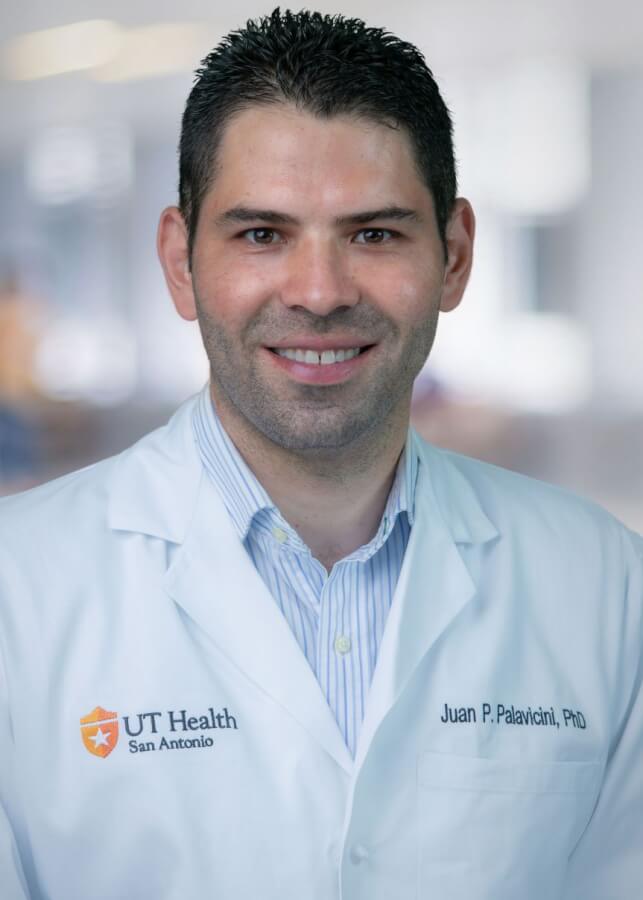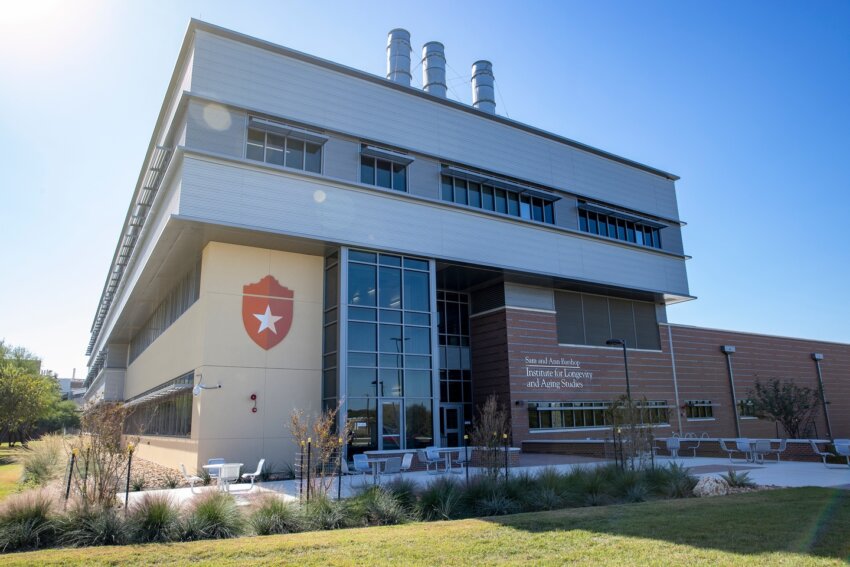American Federation for Aging Research grant allows exploration of signaling molecules toxic in Alzheimer’s, diabetes, aging
Contact: Will Sansom, 210-567-2579, sansom@uthscsa.edu
SAN ANTONIO (Dec. 15, 2022) — The American Federation for Aging Research (AFAR) selected Juan Pablo Palavicini, PhD, an early career scientist at The University of Texas Health Science Center at San Antonio (UT Health San Antonio), to receive the 2022 Glenn Foundation for Medical Research and AFAR Grants for Junior Faculty.

Palavicini is an investigator in the Sam and Ann Barshop Institute for Longevity and Aging Studies and an assistant professor of medicine (diabetes division) in the Joe R. and Teresa Lozano Long School of Medicine, all part of UT Health San Antonio. His research interests include studying the role of ceramides, which are important signaling molecules that in excess become toxic in Alzheimer’s disease, diabetes and aging.
His Glenn Foundation/AFAR grant of $124,842 will fund research of a mouse population that has significantly less ceramides and lives longer.
“Preliminary data from my laboratory indicates that ceramides consistently accumulate with age in multiple organs and animal models,” Palavicini said. “Of interest, circulating ceramides are dramatically reduced in long-lived, growth hormone-deficient mice. AFAR funding will help us to dig deeper into this relationship.”
“These studies are of high interest to the aging field,” said Adam Salmon, PhD, professor of molecular medicine and interim director of the Sam and Ann Barshop Institute. “Positive outcomes of this research will serve as a proof of concept for ceramide lowering-based therapeutic strategies to extend health span.”
AFAR has funded 37 grants totaling $3.93 million to UT Health San Antonio researchers since 2001. A separate $957,000 grant, called a Paul B. Beeson Emerging Leaders Career Development Award in Aging, was supported by AFAR and the National Institute on Aging.
“We appreciate the support AFAR has continued to provide to investigators at the Barshop Institute to pursue our goals of improving healthy aging,” Salmon said.
“It is not an overstatement to say that AFAR is the prime catalyst for the aging field in the U.S.,” Palavicini said. “It is hard to find a leading investigator in the field of geroscience who has not received startup funds from AFAR. To me personally, receiving this grant is a realization that passion and work eventually do pay off, particularly when you spark a little bit of creativity.”
The University of Texas Health Science Center at San Antonio (UT Health San Antonio), a primary driver of San Antonio’s $44.1 billion health care and biosciences sector, is the largest academic research institution in South Texas with an annual research portfolio of $360 million. Driving substantial economic impact with its six professional schools, a diverse workforce of 7,900, an annual operating budget of $1.08 billion and clinical practices that provide 2.6 million patient visits each year, UT Health San Antonio plans to add more than 1,500 higher-wage jobs over the next five years to serve San Antonio, Bexar County and South Texas. To learn about the many ways “We make lives better®,” visit UTHealthSA.org.
Stay connected with The University of Texas Health Science Center at San Antonio on Facebook, Twitter, LinkedIn, Instagram and YouTube.
The Sam and Ann Barshop Institute for Longevity and Aging Studies is one of the world’s premier institutes dedicated to the study of age-related diseases. The Barshop Institute is the only aging-intensive research institute in the country to have four peer-reviewed designations: two National Institute on Aging (NIA)-funded centers (Nathan Shock and Claude D. Pepper centers), a testing site of the NIA-sponsored Interventions Testing Program, and a U.S. Department of Veterans Affairs Geriatric Research, Education and Clinical Center.


